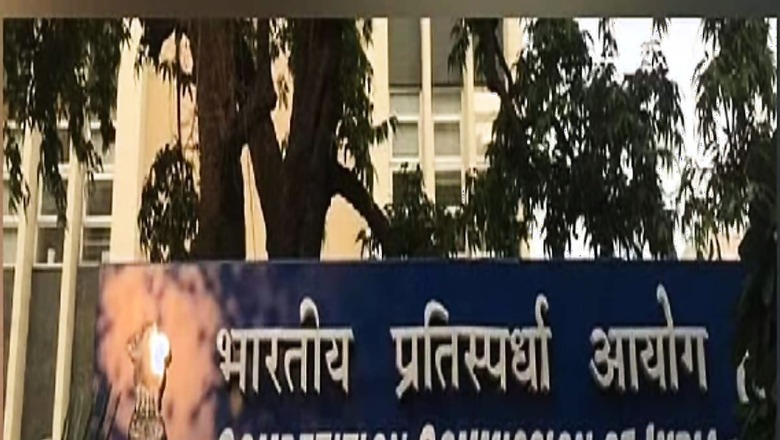
views
While on one hand, the Committee on Digital Competition Law is examining the need for an ex-ante competition law in India, the government is strengthening the ex-post framework by amending the Competition Act, 2002. Recently, both houses of the Parliament gave their nod to the Competition (Amendment) Bill, 2023 (2023 Bill). The bill was first introduced in 2020, but it lapsed and therefore, the amendment Bill (2022, Bill) was reintroduced last year. Thereafter, the 2022 bill was referred to the Parliamentary Standing Committee on Finance (SCF) which suggested sweeping changes, although only a few of them made their way to the 2023 bill.
The exercise of amending the Competition Act, 2002, was initiated in 2019 with the constitution of the Competition Law Review Committee (CLRC). Many salient features of the 2023 bill draw their origin from the recommendations of the CLRC. For instance, the CLRC recommended the construct of a deal-value threshold for merger control to address competition concerns in the digital markets.
Penalty on Global Turnover
The 2023 bill empowers the Competition Commission of India (CCI) to impose a penalty of up to 10 percent of the global turnover. This means penalty can be calculated on the global turnover of an enterprise i.e., sales derived from all products or services, even if they are not related to the relevant product or relevant market.
Interestingly, this was not proposed by the CLRC, and did not feature either in the 2020 bill or the 2022 bill. As a result, this significant change did not figure in the public consultation. This overturns the jurisprudence set by the Supreme Court in the Excel Corp case to limit the calculation of penalty to relevant turnover. The court had noted that when the agreement leading to the contravention of Section 3 of the Competition Act involves one product, there appears to be no justification for including other products of an enterprise for the purpose of imposing a penalty. The court also held that such an interpretation is in line with the doctrine of proportionality.
While other regulators, like the European Commission, also have the power to impose a penalty on worldwide turnover, it is subject to penalty guidelines. (Discussed in next section).
What did we miss out?
While the current amendments are expected to strengthen the competition framework in India, we missed out on specific aspects despite having informed debate around them. Some of these are:
- Penalty guidance: For many years, there has been a demand for the creation of penalty guidelines to ensure certainty and reduce discretion in the imposition of penalty. This was an opportunity to include a statutory obligation on the Commission to frame guidelines, especially, now the penalty can be imposed on income as well as turnover (including global turnover). This would have aligned India with other jurisdictions. For instance, while European Commission has the power to impose a penalty on worldwide turnover, it is subject to penalty guidelines. Similarly, other mature jurisdictions, like, the UK (obligation under Section 52 of the Competition Act, 1998) and Singapore (discretion under Section 61 of the Singapore Competition Act, 2004) have a scope for non-binding penalty guidance.
- Lack of coordination mechanism: Like penalty guidance, with the increasing cross-sectoral business models, there has been a pending demand for coordination and communication between sectoral regulators and the Commission in matters of competition. The 2023 bill provides a facilitation provision where the Commission may enter into a Memorandum of Understanding (MoU) with any statutory body or department of the government. However, this would be at the discretion of the Commission. The Competition Act, 2002, provide for references between sectoral regulators and the Commission. But the CLRC observed that this provision has been used sparsely and recommended to lower the threshold for such reference. For instance, reference should be allowed even in the absence of any contradiction or conflict between the ambit of the Commission and the sectoral regulators. A statutory obligation could have avoided abrupt policy positions and wrong signalling to the market. But the 2023 bill fails to offer this solution.
- Clarity on determination of deal value: The SCF based on the feedback from stakeholders observed that there could be apprehensions around the manner of computation of deal value and therefore, the bill 2022 should mandate the Commission to provide detailed guidance on how the deal value would be computed. Like, how to account for post-closing adjustments or deferred consideration. Similarly, in the case of “substantial business operations in India”, whether it would entail physical presence of the enterprise in India or the presence of its user base (reflective of its market position) in India. Releasing guidance notes would align India with jurisdictions, like Austria and Germany who have adopted a similar concept of deal value threshold.
- Effects-based test: The 2023 bill does not include effects-based test to establish harm in cases of abuse of dominant position (section 4). Incorporating the same could have provided a realistic economic assessment of alleged competition harms. Even the SFC recommended inclusion of this test since the law does not impose a statutory mandate on the Commission to use this lens while evaluating harms. Although this recommendation was not accepted.
- Absence of segregation of powers: The 2023 bill vests the Commission with the powers to appoint the Director General (DG). This could risk diluting the autonomy and independence of the DG in the discharge of its prosecutorial/investigative functions under the Act. The obligation to appoint the DG should have been retained with the Central government. While the CLRC had recommended that the office of the DG should be formally folded into the CCI as an ‘Investigation Division’, it suggested several safeguards to avoid situations of conflict of interest. The 2023 bill does not provide for such measures.
- IPR not a safe harbour: Currently, a party can take the defence that to protect its IPR in a reasonable manner, certain agreements were entered into, although they might have an anti-competitive effect [vertical restraint provisions (section 3(5))]. The CLRC had recommended that a similar defence may be allowed with respect to abuse of dominance. The SCF endorsed this view to avoid any uncertainty and promote innovation. However, the 2023 bill misses out on this safe harbour provision.
- Lack of clarity on attorney-client privilege: At present, there are no powers with the DG to investigate the legal advisers, bankers, and auditors of the investigated entity. The 2022 bill changes this position. The SCF recommended that the amendment bill must explicitly clarify that such deposition before the DG shall not be in contravention of the Indian Evidence Act, 1872, or any other Act that protects attorney-client privilege. However, the 2023 bill fails to do so. This could potentially bring external lawyers engaged by the investigated firm within the scope of DG investigation.
One would not disagree that parliamentary amendment is an arduous and time taking process. Last time, the Competition Act was amended in 2009. We would have fared better if the above issues would have made their way to the final law.
Views expressed are personal.
Read all the Latest Opinions here




















Comments
0 comment